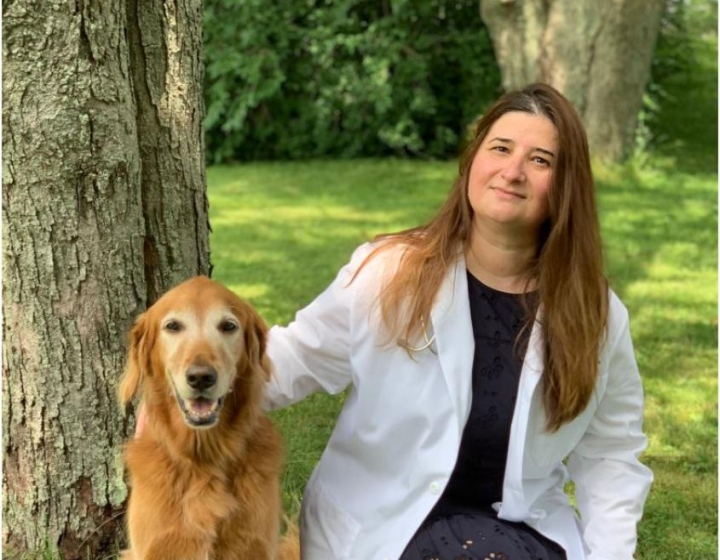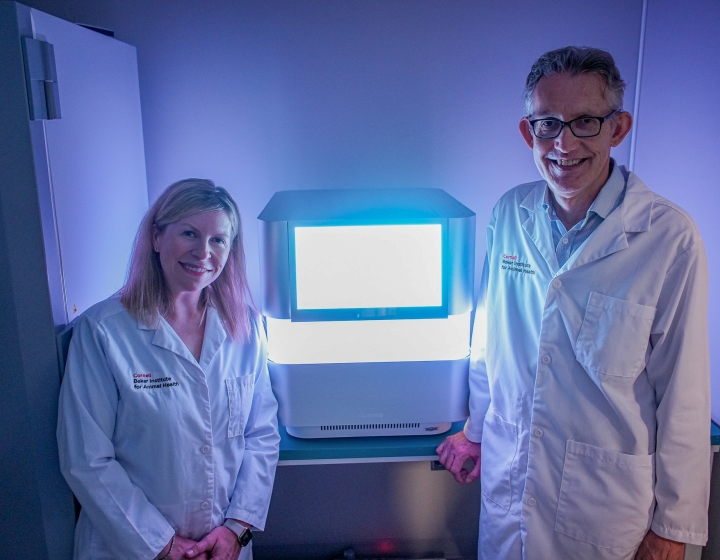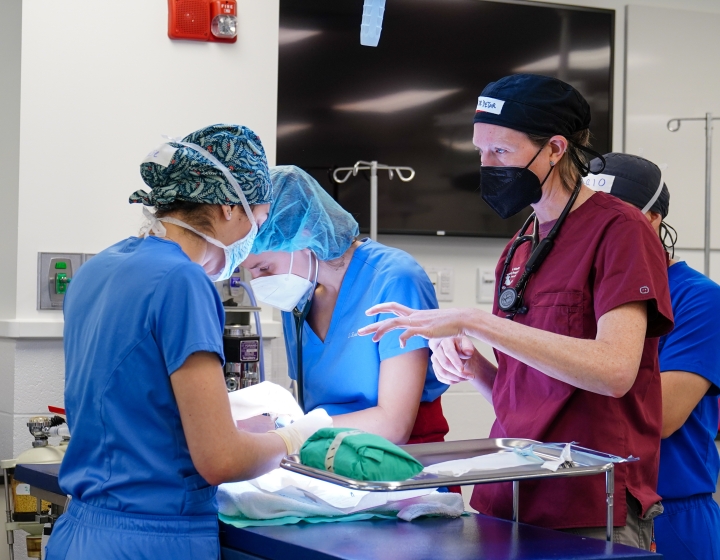Cornell Richard P. Riney Canine Health Center launches Big Red Bark Chat
Dog owners facing sudden questions about their pet’s health can now turn to a new, trusted resource at any time of day. The Cornell Richard P. Riney Canine Health Center (RCHC), part of the Cornell University College of Veterinary Medicine, has recently launched Big Red Bark Chat, an AI-powered chatbot designed to help dog owners and veterinary professionals’ access reliable canine health information when and where they need it.
Developed in collaboration with Amazon Web Services (AWS) Generative AI Innovation Center, Big Red Bark Chat offers on-demand answers to common questions about dog behavior, symptoms, diseases, and veterinary terminology drawn from Cornell’s extensive veterinary knowledge base. The tool aides pet owners to make informed decisions about the care of their dogs, helps people to better understand the recommendations of their veterinary care providers, and serves as an educational resource for veterinary practices.
“Dog owners want immediate answers from trusted sources, especially when they are concerned about a new symptom or an unexpected behavior,” said Dr. Rory Todhunter, Director of the Riney Canine Health Center. “Big Red Bark Chat helps bridge the information gap when their veterinarian might not be immediately available. Our goal is to support better health outcomes for dogs by making expert information more accessible.”
Big Red Bark Chat is the result of a close partnership between the College of Veterinary Medicine and AWS. The RCHC team began exploring AI-powered tools to meet the increasing demand for reliable canine health information, especially as the number of first-time dog owners surged during the COVID-19 pandemic.
Working with AWS’s Generative AI Innovation Center, the Cornell team built a chatbot powered by AWS’s Amazon Bedrock service, using Anthropic’s Claude 4 Sonnet language model as its foundation. The system ingests and indexes Cornell’s proprietary collection of canine health articles, research papers, and educational materials, ensuring that responses are grounded in the most accurate and up-to-date veterinary knowledge.
Security, transparency, and accuracy were top priorities in the design. The chatbot clearly informs users that it is not a replacement for professional veterinary care and encourages consultation with a veterinarian for diagnosis and treatment.
The phased launch of Big Red Bark Chat began in March 2025 with a limited rollout to several hundred Cornell students and faculty members, who helped test and refine the tool. Early feedback was overwhelmingly positive, leading to additional and ongoing improvements in usability and clarity.
Now available to the broader public, Big Red Bark Chat provides answers at a high school reading level and offers sample prompts to help users ask effective questions. The tool also helps dog owners decode veterinary terminology they may encounter during clinic visits.
“Big Red Bark Chat is transforming how we share our expertise with the public,” said Dr. Todhunter. “We see tremendous potential for this tool to support pet owners, veterinary students, practitioners in remote areas, and animal welfare organizations around the world.”
In addition to helping dog owners, by answering health questions, and helping to decipher medical records, Big Red Bark Chat can serve as a valuable educational tool for veterinary clinics. Practices can use it to provide supplemental information to clients, especially in cases where a full consultation may not be immediately available.
The initiative aligns with the Center’s mission to advance animal health through research, engagement, and public outreach. It also highlights how generative AI can be responsibly applied to democratize access to specialized knowledge.
“Cornell’s collaboration with AWS demonstrates that when cutting-edge technology is combined with academic expertise, we can create new pathways for knowledge to flow from the university to the broader public,” said Dr. Todhunter. “Ultimately, our goal is to help dogs live healthier lives and give the people who care for them greater peace of mind.”
Big Red Bark Chat is now available online to all dog owners and veterinary professionals. To learn more, visit www.canine.vet.cornell.edu






